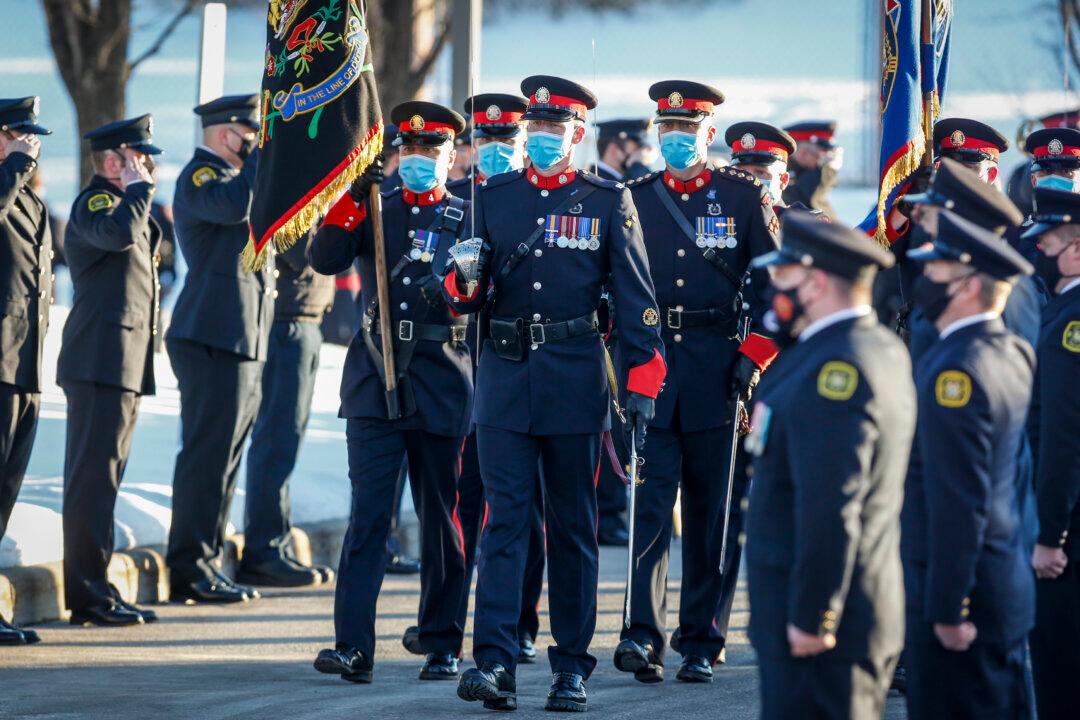A police union in Calgary is telling its members to resist the police commission’s March 30 decision to prohibit the wearing of the “thin blue line” patch on uniforms.
“We encourage each and everyone of you to wear this important symbol in defiance of the order from the commission,” John Orr, president of the Calgary Police Association (CPA), said in a letter to members obtained by CBC News.





